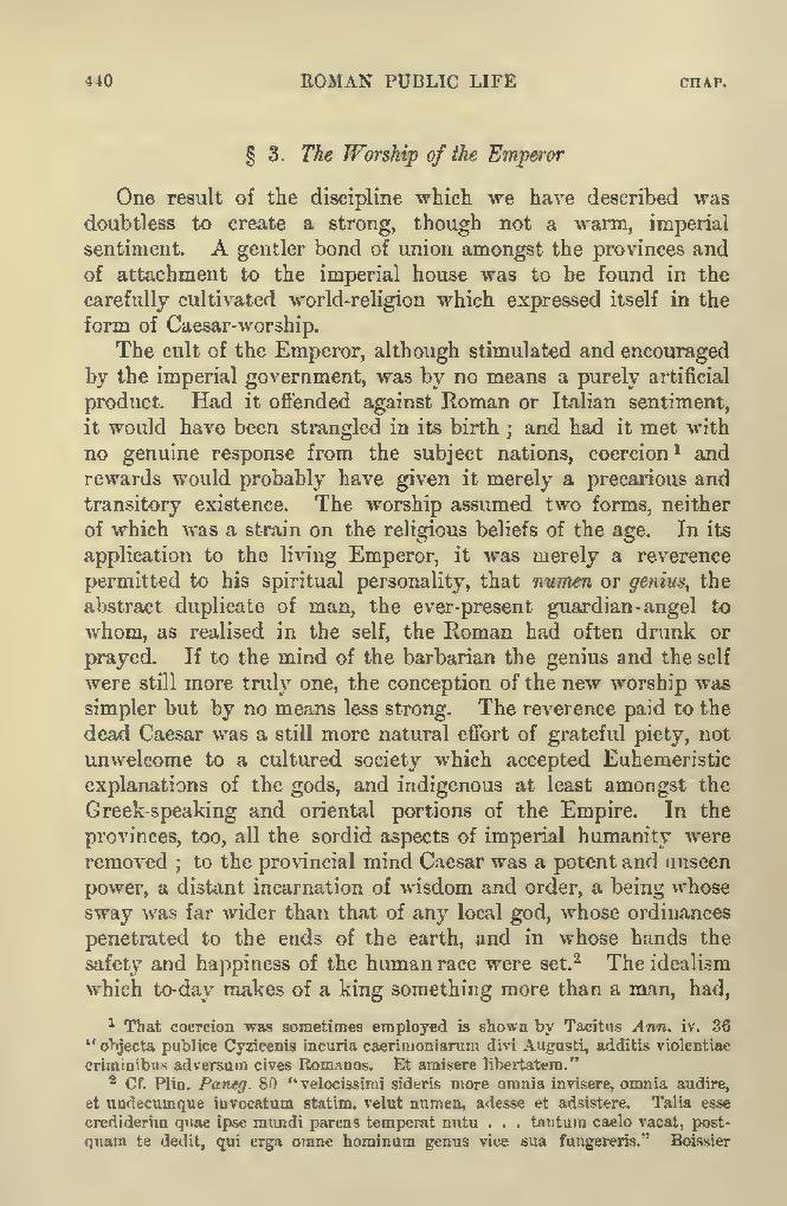§ 3. The Worship of the Emperor
One result of the discipline which we have described was doubtless to create a strong, though not a warm, imperial sentiment. A gentler bond of union amongst the provinces and of attachment to the imperial house was to be found in the carefully cultivated world-religion which expressed itself in the form of Caesar-worship.
The cult of the Emperor, although stimulated and encouraged by the imperial government, was by no means a purely artificial product. Had it offended against Roman or Italian sentiment, it would have been strangled in its birth; and had it met with no genuine response from the subject nations, coercion[1] and rewards would probably have given it merely a precarious and transitory existence. The worship assumed two forms, neither of which was a strain on the religious beliefs of the age. In its application to the living Emperor, it was merely a reverence permitted to his spiritual personality, that numen or genius, the abstract duplicate of man, the ever-present guardian-angel to whom, as realised in the self, the Roman had often drunk or prayed. If to the mind of the barbarian the genius and the self were still more truly one, the conception of the new worship was simpler but by no means less strong. The reverence paid to the dead Caesar was a still more natural effort of grateful piety, not unwelcome to a cultured society which accepted Euhemeristic explanations of the gods, and indigenous at least amongst the Greek-speaking and oriental portions of the Empire. In the provinces, too, all the sordid aspects of imperial humanity were removed; to the provincial mind Caesar was a potent and unseen power, a distant incarnation of wisdom and order, a being whose sway was far wider than that of any local god, whose ordinances penetrated to the ends of the earth, and in whose hands the safety and happiness of the human race were set.[2] The idealism which to-day makes of a king something more than a man, had,*
- ↑ That coercion was sometimes employed is shown by Tacitus Ann. iv. 36 "objecta publice Cyzicenis incuria caerimoniarum divi Augusti, additis violentiae criminibus adversum cives Romanos. Et amisere libertatem."
- ↑ Cf. Plin. Paneg. 80 "velocissimi sideris more omnia invisere, omnia audire, et undecumque invocatum statim, velut numen, adesse et adsistere. Talia esse crediderim quae ipse mundi parens temperat nutu . . . tantum caelo vacat, postquam te dedit, qui erga omne hominum genus vice sua fungereris." Boissier
